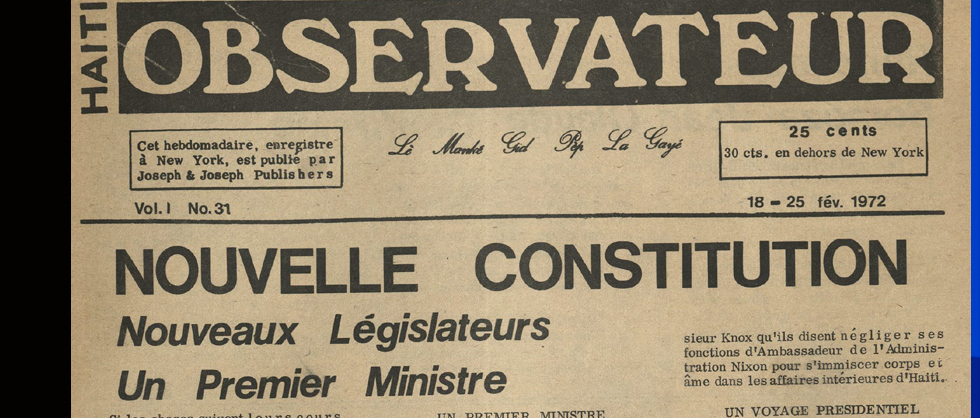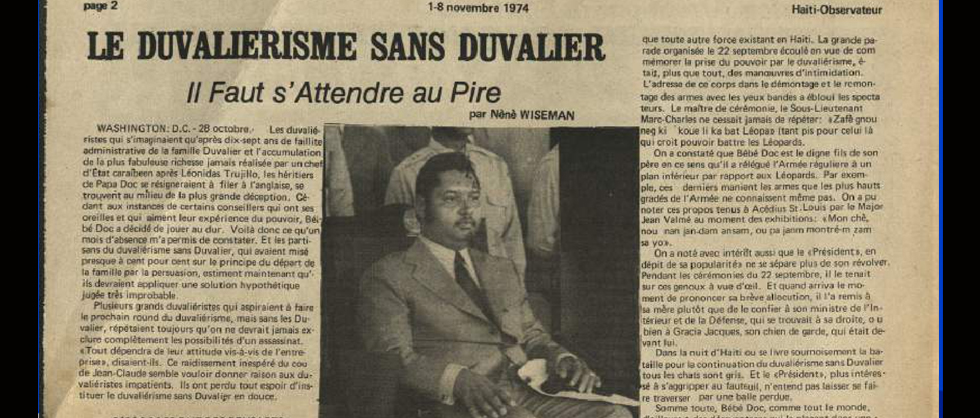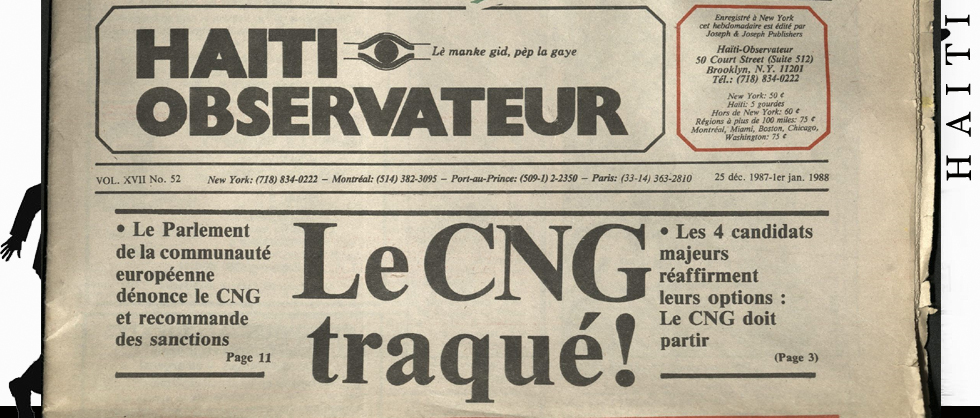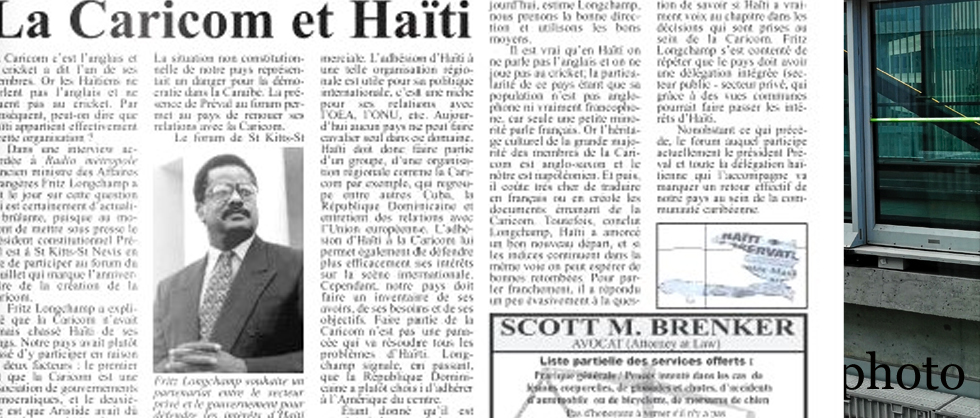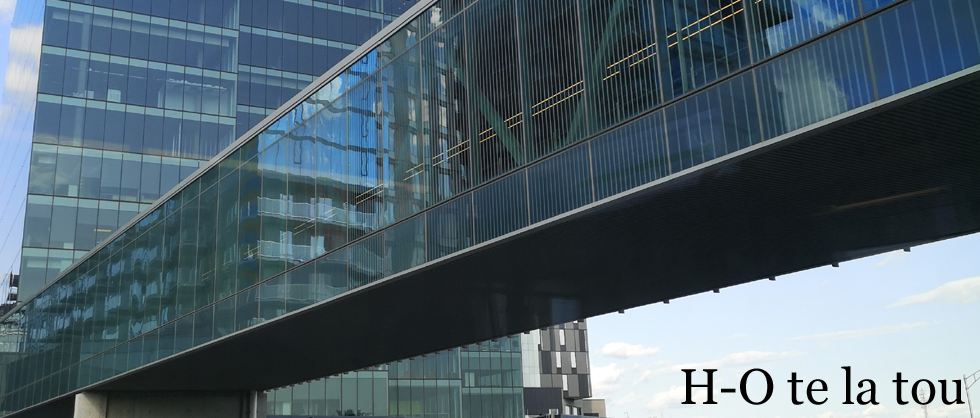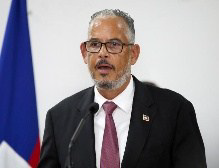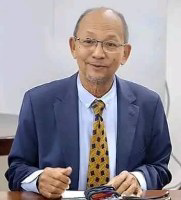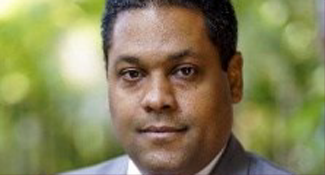
Is it the Dawn of a New Day for Haiti?
- by Raymond Alcide Joseph
A flurry of actions about Haiti, both in and outside the country makes one wonder about what’s happening? Would it be that there’s a general awakening regarding the situation of the country buffeted by a multiplicity of crises?
Take, for instance, the Council of Presidential Transition CPT) which issued a communiqué on July 21, about a “strategic” high-level meeting that was held by the various entities implicated in the issue of security for the nation, which is besieged by violent armed gangs, now in control of about 90% of Port-au-Prince, the capital, according to the United Nations.
The CPT communiqué states that “total cohesion was reached to mobilize all resources to combat insecurity, because security remains the absolute priority of the State.” That meeting was a major accomplishment when one considers the attendees. Two presidential councilors, Leslie Voltaire and Laurent St.-Cyr, were leading the discussion and the meeting was held in the office of Prime Minister Alix Didier Fils-Aimé. Thus, the two branches of the country’s governance were represented. In attendance were the Minister of Justice and Public Safety, members of the government’s Task Force for Security, the leadership of the Haitian Armed Forces (French acronym FAd’H), top representatives of the Haitian National Police (HNP) and also of the Kenya-led Multinational Security Support Mission (MSS) in Haiti since June of last year.
The CPT must have awakened from a long sleep, because that 9-headed presidential governance set-up by the 15-member CARICOM, as the organization of Caribbean states is called, in accord with Washington and other international bigwigs, was inaugurated April 25, 2024, with its priorities being restoration of security in Haiti to allow for holding democratic elections before their mandate elapses on February 7, 2026.
As widely reported, the security situation in Haiti has worsened under the leadership of the CPT, which feels insecure even in a safe community of the capital. The gang situation around Port-au-Prince is such that there has been consideration of moving CPT headquarters to Cap-Haitian, the capital of the northern department, where security reigns, just as in the southern department, as the country’s mini states are called.
It’s believed that this latest concern of the CPT regarding security is a ploy to prolong their mandate which is supposed to end within seven months. It will certainly take more than seven months to pacify the whole country in order to organize the democratic elections. Thus, a prolongation of the ineffective governance of Haiti is being attempted for the benefit of the councilors, some of whom are involved in corruption.
Authoritative voices for security and apt governance
Is it a coincidence that, at this time, the Conférence Épiscopale d’Haïti (CEH) issued a declaration having to do with security and governance? On July 23, that organization comprised of all the 11 Catholic Bishops and the one Cardinal of Haiti issued the document signed by them, in which they denounce the multifaceted crisis causing the downfall of the nation and, adroitly, positioned themselves against the government which has resorted to working on a new constitution which would reinforce executive power, while providing a few crumbs for the citizens. The text of the CEH asserts: “The time isn’t conducive for the adoption of a new constitution. Today the priority is to security, peace and governance for the wellbeing of the people.”
Interestingly, the top Catholic leaders of Haiti which, officially is a Catholic country, agree that something must be done to reinforce the security of the country and bring peace to all. However, diplomatically, they insinuate that the country lacks the governance needed for the wellbeing of the nation. In effect, Haiti’s Catholic hierarchy expresses the sentiments of the majority of the people who call for political change at the top. Unquestionably, the leaders of the international community that have assumed oversight of Haiti have failed with their experimentation of this multi-headed presidency.
AND THE OAS GETS INTO THE PICTURE
All of a sudden, attention is riveted on a plan of Albert Ramdin, the Secretary General of the Organization of American States (OAS), to deal with the situation in Haiti. In a story, August 1st, in POLITICO’s Natsec Daily columm, entitled “Troubled OAS pitches a new Haiti intervention,” under the byline of Phelim Kine, Mr. Ramdin is mobilizing the35-member-countries of the OAS “to end the chaos in Haiti.” To that end, Ramdin calls for a “$1.4 billion OAS-led and European Union-backed intervention in Haiti, starting next month [September].” This occurred on Tuesday, July 29, during a “closed-door speech of the Secretary General to the OAS representatives.”
In his plan to defeat the gangs “sowing chaos in Haiti’s cities” Mr. Ramdin mentions “unimpeded humanitarian aid to the country’s 1.3 million displaced people and restoring order to pave the way to national elections.” Moreover, his plan includes “the creation of six European Union-funded ‘forward operating bases’ tasked to resolve the ‘dire security situation’ in and around the capital Port-au-Prince.” In his speech, Ramdin is said to have “thanked the EU for providing the resources for that initiative, but he did not say what commitment he had received from the EU.”
Obviously, the United States is ignored in the Ramdin project for Haiti. Is that due to President Donald Trump’s detachment from what’s happening in Haiti, a country he’s often disparaged. Needless to say, eyebrows have been raised on the evolving diplomatic situation with the European Union showing interest in the project of the hemispheric organization, which is headquartered in Washington, D.C.
Anyway, it looks like the dawn of a new day for Haiti, which is being embraced by sister countries in this hemisphere, some of which gained their independence with the help of Haiti, the Fount of Freedom, for having been first to defeat slavery at the Battle of Vertières, on November 18, 1803, but now finding itself in such abject situation.
The swearing-in of a new CPT president
Today, August 7, Laurent St-Cyr was sworn-in as the new president of the CPT, based on the rotating arrangement to have a new president every six months. He replaces Fritz Alphonse Jean, who himself had replaced Leslie Voltaire. Interestingly, St-Cyr and Voltaire are the presidential councilors who were in charge of the strategic high-level meeting mentioned in the July 21 communiqué, which stated that “total cohesion” was reached about what to do regarding security as top priority for the country. Since Voltaire was the first to have declared “war against the gangs,” is his alliance with St.-Cyr a diplomatic reprimand of Jean, under whose leadership, the gangs have grabbed more territory and caused more harm?
To be noted, in his inaugural speech, President St-Cyr said elections will be held for transfer of power February 7, 2026. Since he’s the representative of the business sector in the CPT and Prime Minister Fils-Aimé also is from the same sector, it would appear that the business community in Haiti is showing more responsibility and honesty in accomplishing the task for Haiti’s renewal. In that light, we can say the dawn of a new day for Haiti is not far off.
- RAJ, at raljo31@yahoo.com
- August 7, 2025 FROM THE DESK OF RAY JOSEPH
- L St-Cyr
- D A Fils-aimé
- Leslie Voltaire


